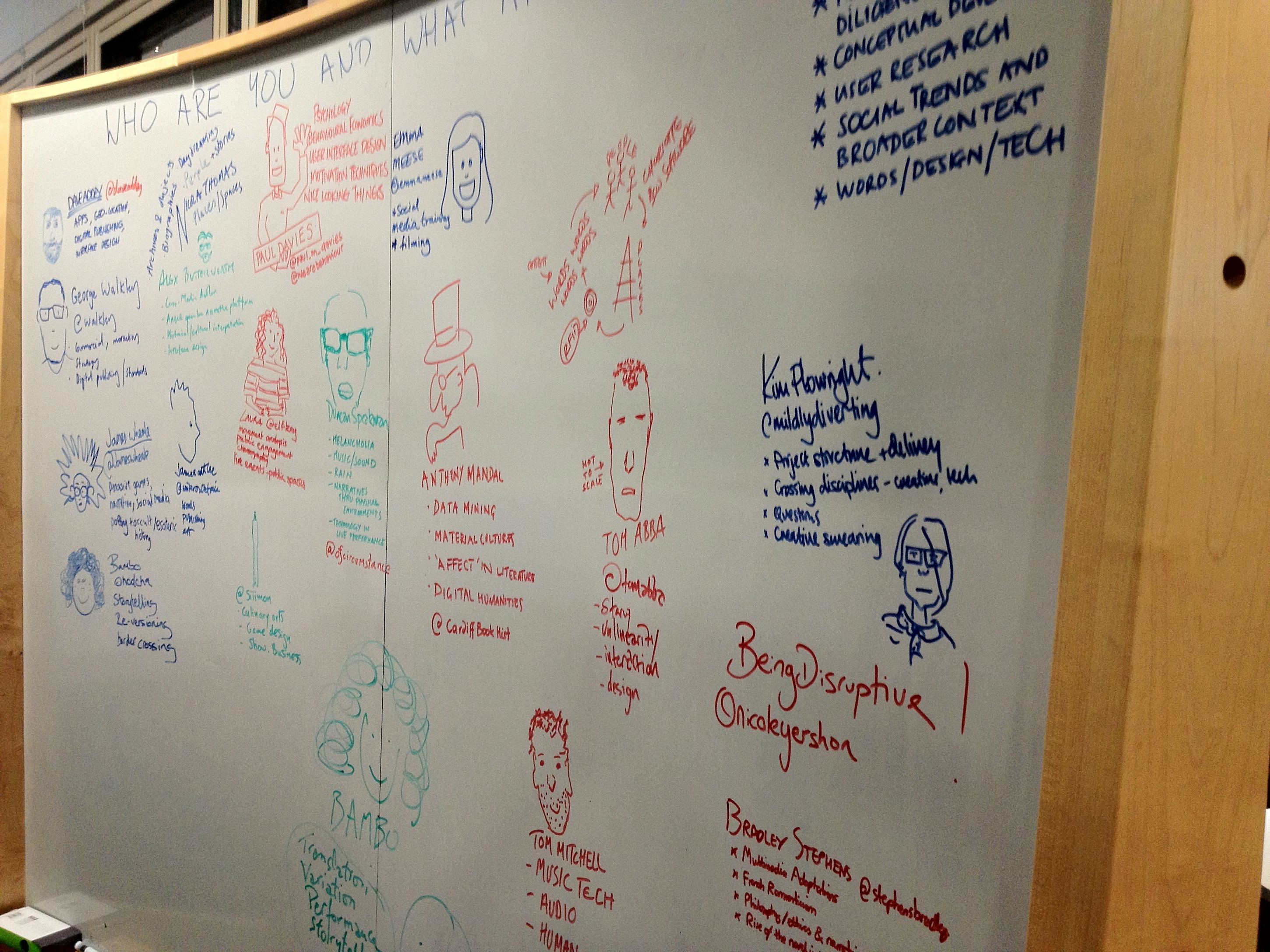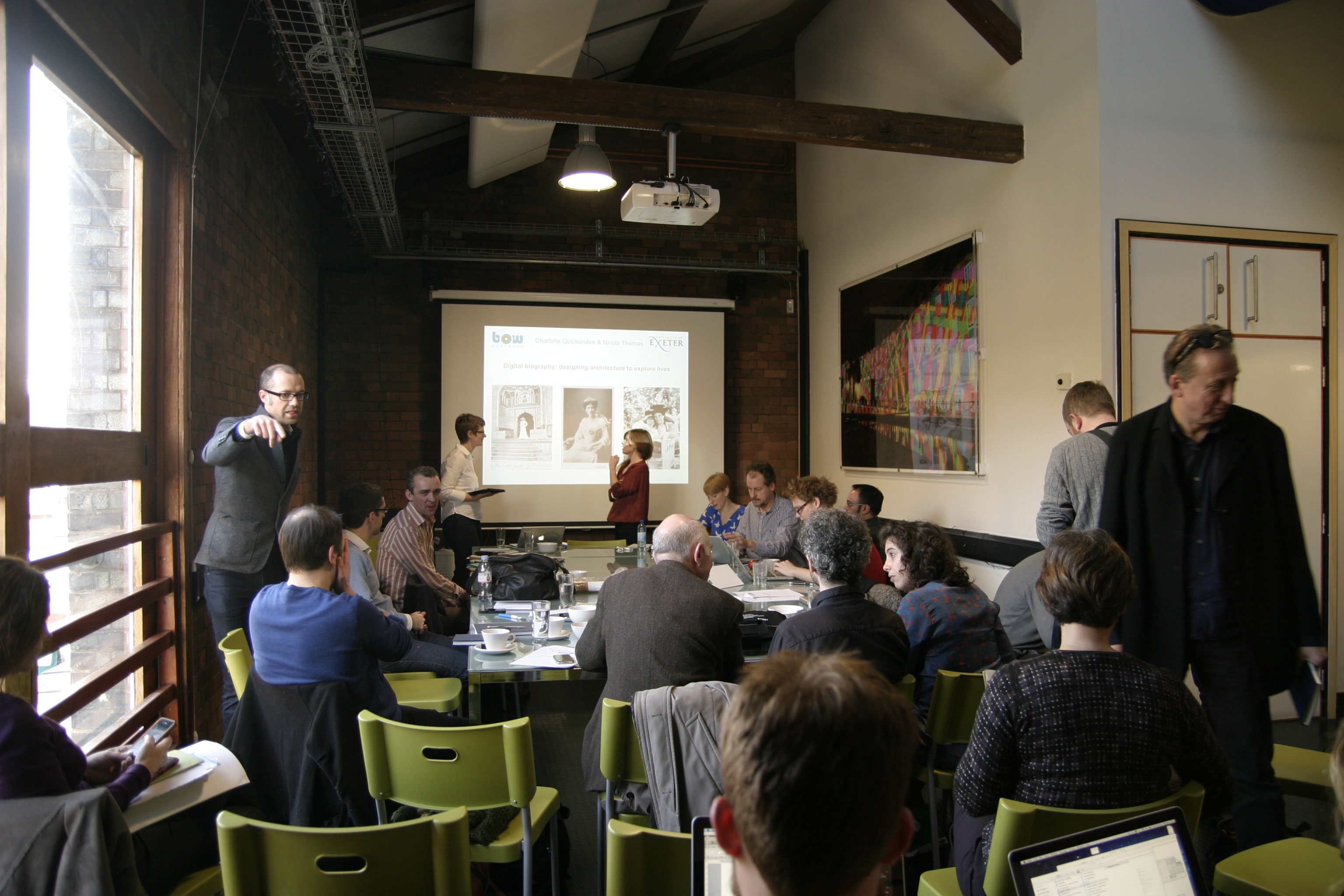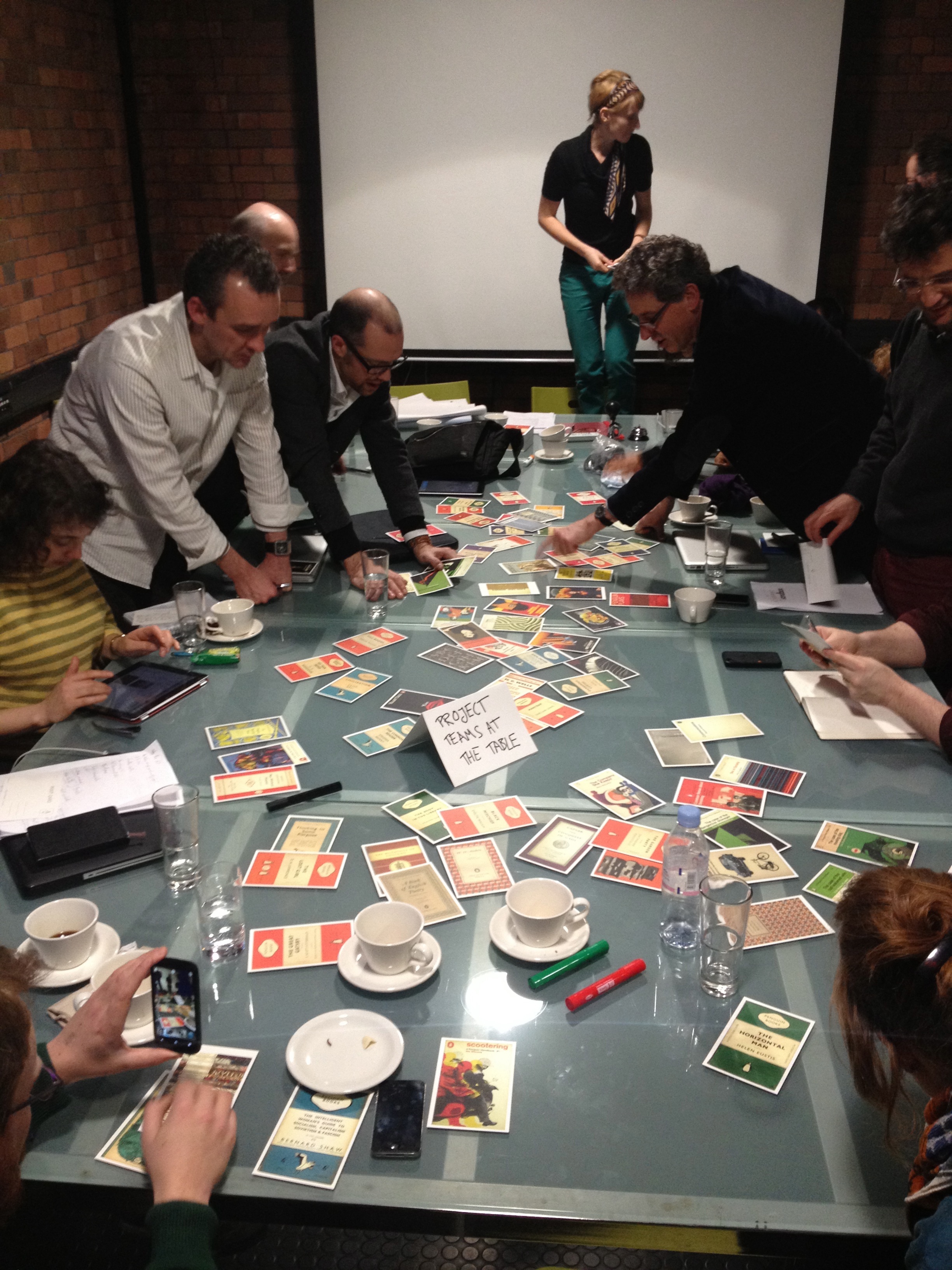The Past is Over: Sandbox begins
Last week, as the Books & Print projects were finally announced to the world, the teams gathered at the Pervasive Media Studio for the first time, to find out what 'being in a Sandbox' actually means.
There is a wealth of talent and experience in the group (see image below) that we are really keen the group feels able to make the most of. This time around, we wanted to kick start the three months with a two day event; accelerating the getting to know each other bit and encouraging the teams to get stuck in to making their projects happen straight away. I think that it worked, it was an incredibly productive couple of days.

There was an immediate sense of engagement and enthusiasm from the group, evident in the relish with which they responded to my (potentially trite) request to introduce themselves with their favourite books. We went on to hear from each of the teams about their projects. Common issues and themes were immediately apparent as questions emerged around editorial control vs interactivity, source material as story and balancing depth of content with delivery method. Some discussions even left the room as advisor Kim Plowright sparked a twitter debate on whether a canon of digital storytelling yet exists (see one response here, with more thoughts to follow). Building on this sense of shared inquiry, the teams paired up to discuss all the things that they don't yet know with some careful provocation from our fantastic group of advisors. By the end of this first day the initial energy had developed into a barely concealed panic about the task ahead. Luckily we had a delicious dinner and a fair few bottles of wine ahead over which to share concerns and rebuild our egos.

If the first day was all about sharing ideas and questions, the second was focussed on the practicalities of R&D. The Sandbox is a new and demading approach for many people and often requires a different mindset to other types of work. Leila Johnston of the Literary Platform (check out their current series on R&D) brought this into sharp focus with a brilliant talk on 'Making things fast' prompting some passionate responses with her controversial intructions to forget about past work, future ambitions and being perfect. As you might imagine, this was particularly unnerving for some of our academic participants. The pace and style of research will probably always be an issue for us in REACT Sandboxes but responding directly and having the conversation upfront felt good. I think Leila enjoyed the reaction too; "that's quite philosophical" she mused when asked if she thought 'motivation' always suggests having a 'good' reason for doing something, "I'm a philosopher, that's my job" came the reply.

After an afternoon planning their R&D in project teams we finished off by hearing from some previous Sandboxers about their experience and by writing postcards to ourselves, six months down the line, reflecting on what we would like to have achieved by that point. I was struck by the laughter, honesty and openess of the group in doing this. When after just two days together people who have never previously met are happily mocking each other publically, you know you have got something right (I have no idea why I am standing on a chair here).







